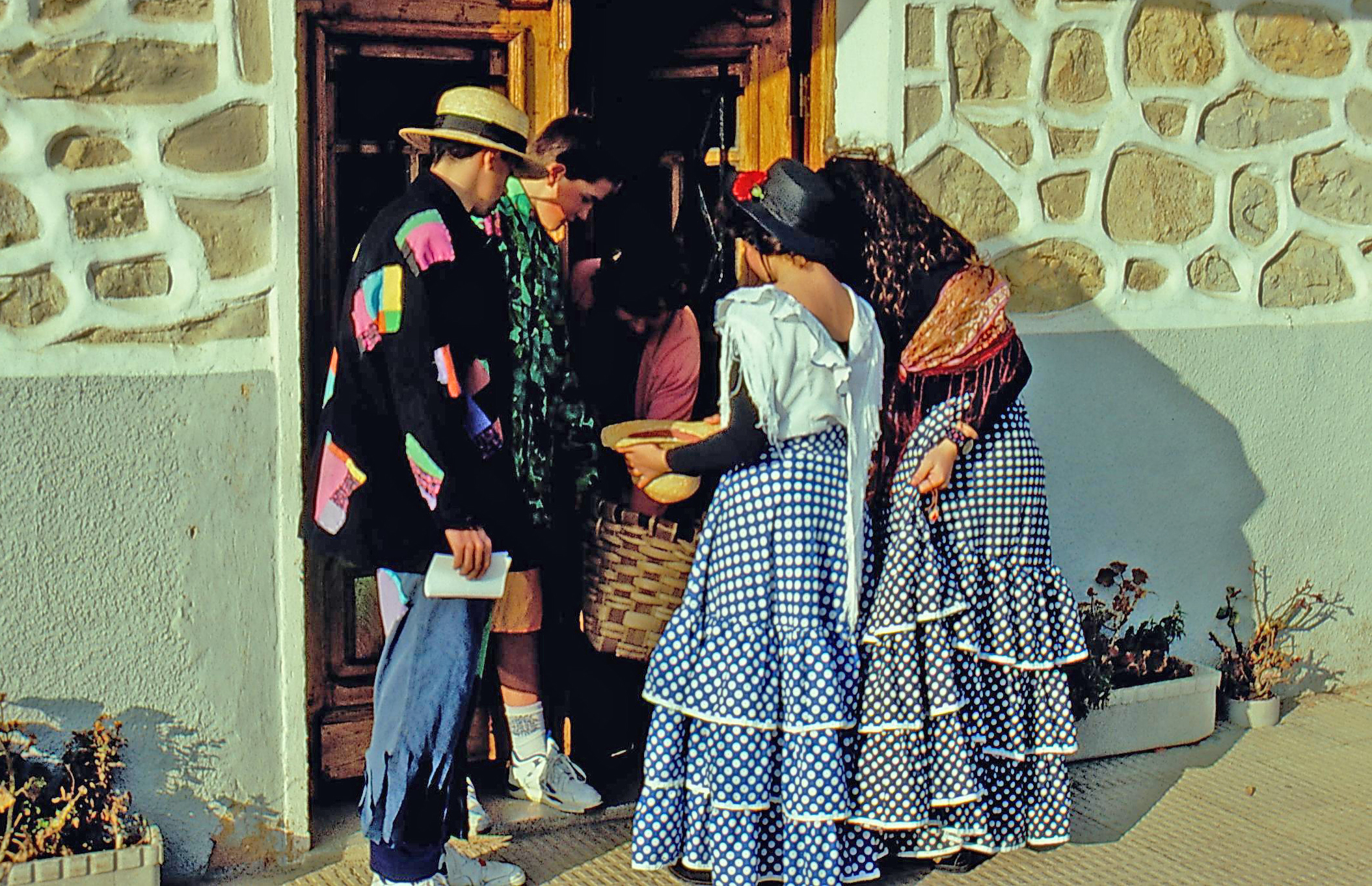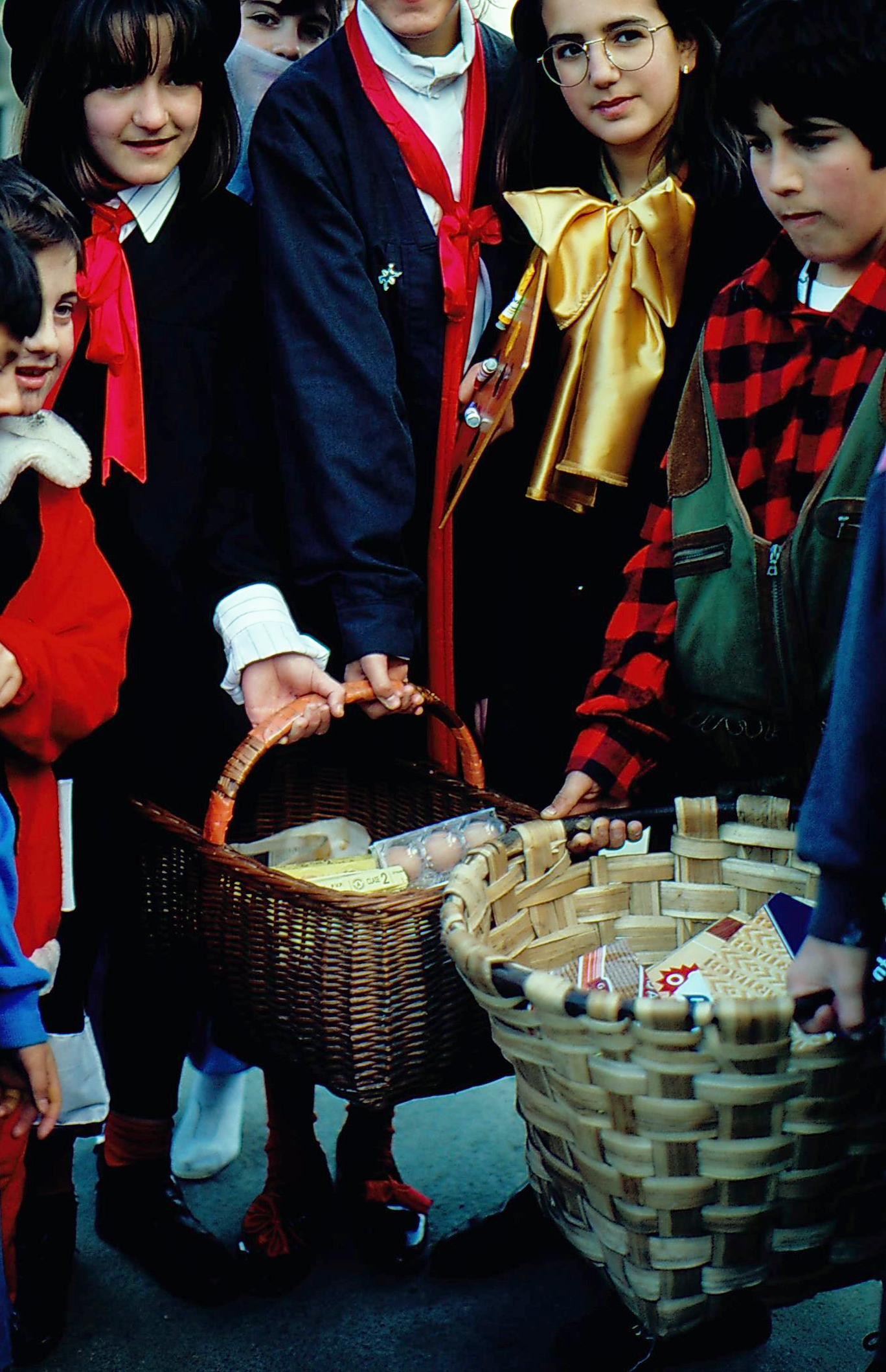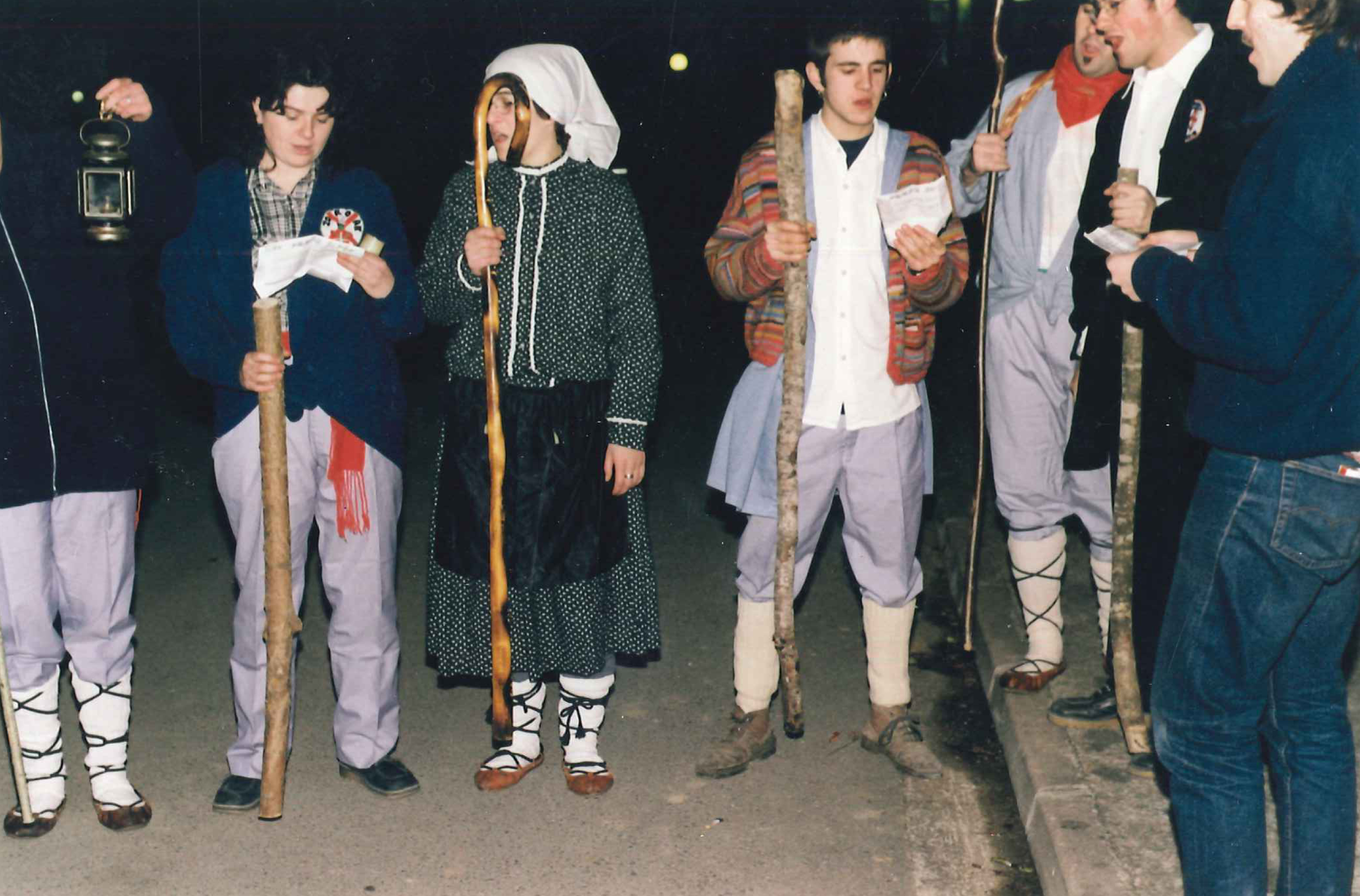Basque ethnography at a glance
In a good many localities, both in the northern and southern Basque Country, carnival started on Fat Thursday, that is, the Thursday immediately preceding Lent. Such day was known by different names in Spanish, jueves de lardero being one of them. The feast was mainly enjoyed by school-age children. In Zigoitia (Álava) it was traditionally celebrated on the last Thursday in January.
Two main elements were present on the occasion: singing and wassailing. Schoolchildren rehearsed in advance with their teacher the song to be performed along the route. House-visiting wassailing took place on the eve, Wednesday afternoon, so children left school a bit earlier than usual, boys and girls from nearby villages more rightly so. Equipped with baskets and pots for the eggs, lard and sausages, and a bag for cash donations, off they went.
Starting in the upper part of town, they paraded neighbourhood to neighbourhood and door to door singing Fat Thursday song. Up to four versions of it were known in Zigoitia. As the yearly pig (churro) had by that time already been slaughtered in most houses, the singers received chorizo, blood sausages, bacon fat, pork ribs, and a little money. Households who had not yet butchered the hog contributed eggs and some coins.
Upon completion of the tour the marchers made their way to where luncheon was to be held on the following day and counted the money. In villages without a public house the two oldest children travelled to neighbouring Gopegi to buy fizzy water, biscuits and fruit for dessert.
The first duty on Fat Thursday was to attend mass. Afterwards they played until it was time to eat. All schoolchildren gathered for lunch, and those who had recently finished their schooling were also invited. The menu consisted of hot broth, chickpeas and cabbage, pork fat, blood sausages, and stewed meat in tomato sauce. School-made custard and biscuits were popular for dessert. Drinks included wine and soda, and milk with a touch of coffee to end with. In the afternoon, if the weather was bad, they would play cards in groups. Takings permitting, hot chocolate and biscuits were served for a mid-afternoon snack. Card games continued till suppertime. Soup, spicy-sausage omelette and fruit were a typical choice for the last meal of the day before leaving for home.
The words of one of the songs said:

Isidro Sáenz de Urturi – Etniker Álava – Etniker Euskalerria Groups
Translated by Jaione Bilbao – Language Department – Labayru Fundazioa
Reference for further information: Family Diet, part of the Ethnographic Atlas of the Basque Country collection.




